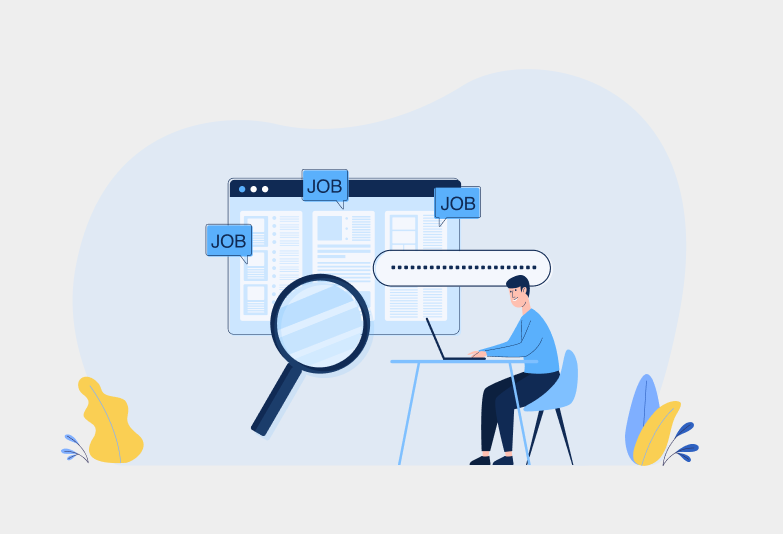As a startup owner, deciding whether you finally need a human resource professional can be tricky. Between focusing on competition, building a brand identity, creating a solid customer base, and improving services, recruitment and staffing fall back as a concern.
In fact, it is quite uncommon for startups having less than 50 employees to have HR departments. But if things start feeling disorganized and inefficient especially for a fast-growing company, you should consider bringing a full-time HR professional onboard immediately.
Here are 5 signs that your company is suffering in the absence of an HR professional:
You’re nearing the Magic Number – 50!
Once a startup hits the mark of 50, it is time to implement all the laws that apply to employers with 50 or more full-time employees.
This is when you probably need an HR professional who is well-versed with compliance and can efficiently manage leaves, recruitment, employment policies, and more.
Throwing all of this on a to-do list for your office manager who is neither trained nor experienced in handling HR responsibilities is a recipe for disaster.
A full-time HR professional will not only ease your burden but also create an environment conducive to productivity, which can certainly boost your bottom line over time.
Recruitment is Taking a Backseat
The success of any startup depends on the performance and potential of its initial team. This makes it important to get recruitment right from the start, especially if you are considering how much the sourcing process can cost your startup in terms of time, effort, and money.
So if you are finding it difficult to attract, hire and retain top performers to your company, hiring a tech-savvy HR professional makes perfect sense.
HR professionals are well-acquainted with the sourcing process and when their knowledge is coupled with advanced recruitment software, recruitment and staffing becomes a total breeze.
They can automate everything using an applicant tracking system from posting jobs to screening CVs to scheduling interviews while ensuring that they hire the right fit for every job opening and also minimize your in-house recruiting cost.
Employees are not Proactive
Startups typically have a reactive approach to HR where people resolve issues by stepping into the role of HR when a problem arises. Since there is no one performing the duties of an HR full-time, people typically wait until the point where the company gets into trouble regarding employee records, compliance issues, or employee policies.
HR legislation is a dynamic discipline subjected to constant changes which often go unchecked since there are several other concerns to be addressed in a fast-growing startup.
So, if you do not want to run the risk of litigation and waste your valuable hours on costly and complicated legal matters, shift your approach from reactive to proactive with professional HR support.
Having an HR professional in place will ensure that the right policies and procedures are enforced whether it is compensation, perks, performance management or recruitment.
Someone without HR Experience is Handling HR
Human resource professionals carry a lot of knowledge and training which helps them identify the right fit and fill vacancies faster.
So whether a company has 5 or 50 employees, doing HR without any HR experience or professional training can be detrimental in terms of potential costs, retention, and legal ramifications.
So if you are still running between several roles, it is high time you bring an end to your balancing act and hire a human resource professional with the ability to run HR processes smoothly from start to finish.
Inexperienced Hiring is Proving Expensive
Cutting HR related costs is actually increasing your risk as you are likely to face legal issues in the long-term. Sourcing, firing, appraising, promoting, terminating, demoting and even paying salaries can have consequences under the HR laws.
The more team members you have, the more decisions you need to take and greater is your risk of inviting legal issues. Thankfully hiring an HR professional that fits your budget will ensure that your workforce management remains on track, productive and free from conflicts so that you can stay focused on big growth.
Poor or nonexistent human resource processes can stunt the growth of your startup so it is very important to stop thinking that HR support is an expense.
Instead, having a dedicated HR professional is an investment that you make in the growth of your company. But if you have a manageable number and still want to delay hiring an HR professional make sure you leverage HR technology.
Applicant tracking systems give startups the freedom and flexibility to automate the entire sourcing funnel from start to finish enabling startup owners to save tremendous time, effort, and money on hiring top talent. These applicant tracking systems accelerate most of the transactional HR tasks for startup owners who serve as a single point person for sourcing top talent.
So till you hire an HR professional, use an ATS to help you recruit the right people while you dedicate your focus to other important aspects of the business.



